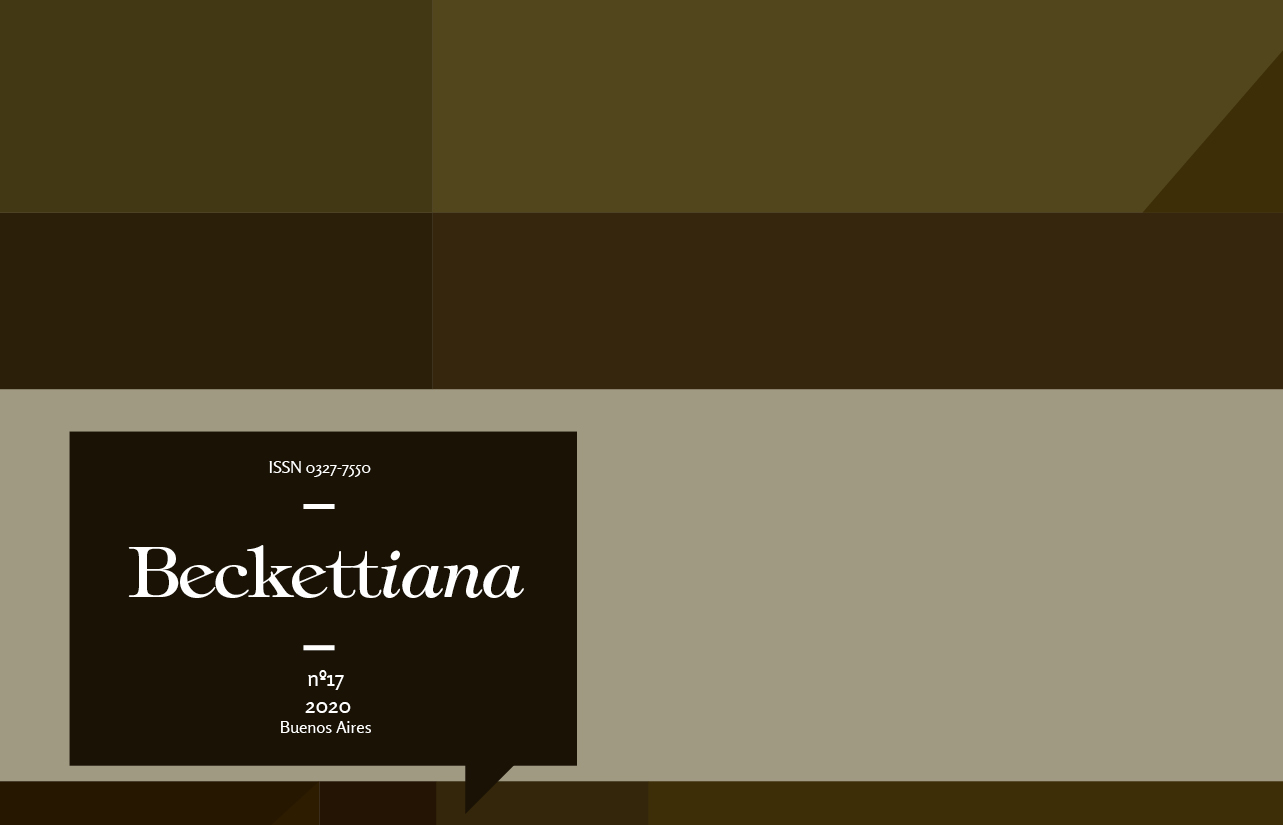“I’ll tell”: Beckett, Geulincx and the Will to Fail
Keywords:
Beckett, Geulincx, Fizzles, failure, will
Abstract
In this paper, we look for traces of the effect Arnold Geulincx’s Ethics had on Samuel Beckett’s Fizzles. We consider this work to be representative of Beckett’s later poetics, given the multiple references he makes to his previous works in it, which signals an intent to create a text that works as a summation of his oeuvre. With this objective in mind, we trace the references to Geulincx in Beckett’s text after his reading of the Ethics and we show how Geulincx’s philosophy, especially the idea that human will is subjected to a divine will just like the people walking eastward on a ship heading West. Beckett’s replaces God with randomness, but he accepts that there is no way to express the will of the ‘I’. Here, his poetics mutate: the negative effort of his early texts becomes a will to create, even though it will inevitably end in failure. This is announced in “Three Dialogues”, where Beckett makes his famous claim about the impossibility of expressing oneself. Finally, we proceed to an analysis of the Fizzles themselves, where we encounter an insistence on willful failure, both in the form and content of the texts that compose it.Downloads
Download data is not yet available.
Published
2020-11-30
How to Cite
Duchovny, M. (2020). “I’ll tell”: Beckett, Geulincx and the Will to Fail. Beckettiana, (17), 39-49. https://doi.org/10.34096/beckettiana.n17.9126
Issue
Section
Artículos








